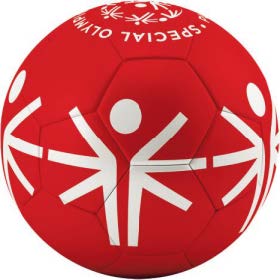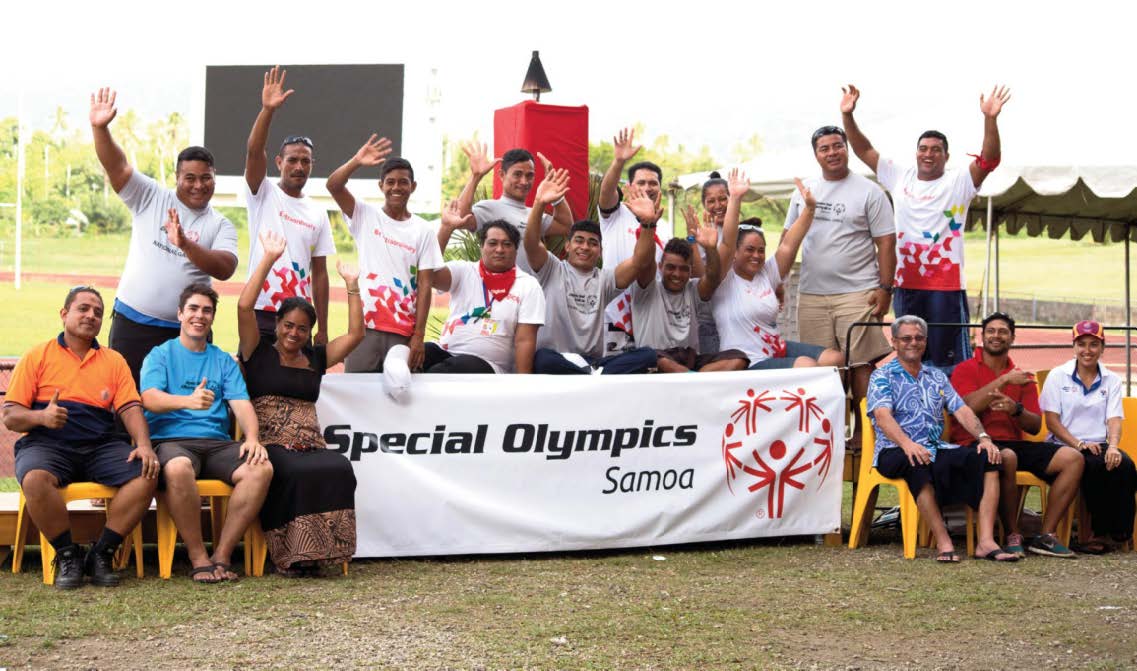People with intellectual disabilities face health care providers who don't have the knowledge or willingness to treat them. Despite severe need and higher health risks, people with ID are often denied health services.
If you want to help straighten her bones, dig a hole in the ground, have your daughter stand in it and then pack it with soil. Do this every day for six hours. This was the advice that 10-year old Joyce Ainensasi's parents were given to help their daughter with cerebral palsy stand and walk. As loving parents who wanted the best for their daughter, they followed the advice. So every day, for six hours, Joyce would stand in a hole packed with dirt patiently waiting for the treatment to work.
Joyce lives in Kiwanga, Uganda, a suburb of the capital city Kampala. Her story is repeated again and again across the world in both developed and developing nations. People with intellectual disabilities (ID) face health care providers who don't have the knowledge or willingness to treat them. Despite severe need and higher health risks, people with ID are often denied health services. This is why for over 20, Special Olympics has been training health care providers and bringing health screenings to people with ID in over 130 countries through its Healthy Athletes® program while simultaneously training healthcare providers at these events on how to work with people with ID and their families. Additionally, six years ago, Special Olympics launched a program called Healthy Communities, made possible by the Golisano Foundation, which aims to provide equal access to quality healthcare for people with ID in communities all over the world. Healthy Communities addresses the severe health disparities faced by people with ID through both immediate and long-term communitycentered solutions including providing ongoing health prevention programming, training health care providers, collaborating with governments, hospitals and community partners and developing self and family advocates.
In Uganda, Special Olympics Healthy Communities partnered with the Korea International Cooperation Agency (KOICA) to bring healthcare to people with ID. Last year, KOICA trained 95 local district health providers and Village Health Educators to identify people with ID and educate families on malaria prevention methods, as well as the signs and symptoms of malaria. The partnership between Special Olympics Uganda and KOICA also includes training coaches and family members how to do strength training exercises. Joyce's father, George Abaho, was one of the family members to attend the trainings. He and the KOICA volunteers began working with Joyce, doing exercises on a daily basis to strengthen her legs and core. George learned that having Joyce stand in a hole in the ground every day was not going to improve her condition.
"When KOICA started doing exercise with Joyce, she got much better" says George. Joyce has grown stronger and she no longer stands in a hole in the ground all day. She is able to attend school and play with other children. "I feel good because I can walk like other children. I am also happy because I can feed myself, take myself to the bathroom, and play like any other child. I feel so grateful for this," says Joyce.
The United Nations Convention on the Rights of Persons with Disabilities recognizes "the right to the enjoyment of the highest attainable standard of health without discrimination on the basis of disability." However, people with intellectual disabilities continue to face discrimination, lower quality of care, and as a result, drastic health disparities. People with ID are two times more likely to die before the age of 50 than adults without ID. Globally, adults with ID are more than two times likely to be obese compared to adults without ID. There is often a misconception that the poor health of people with ID is due to their disability. Research has shown that it is in fact a result of a breakdown in health education, health promotion, and health care. Over half of medical school deans and students report that graduates are "not competent" to treat people with ID.


PERSONAL BEST: The Special Olympics Samoa staff and volunteers prepare for events; Special Olympics Samoa and Special Olympics Uganda are both working to become recognized as Healthy Communities within Special Olympics, developing partnerships to help athletes like Liui'a and Joyce access healthcare and wellness opportunities year round in their own communities.
SPECIAL OLYMPICS HEALTH
Special Olympics Healthy Communities create a network of care for Special Olympics athletes and others with ID. For many people with ID, access to health begins at Special Olympics events, where they are examined by trained health professionals who volunteer their time at Healthy Athletes. Healthy Athletes provides health screenings exams and health education at Special Olympics events. There are eight disciplines within Healthy Athletes, Fit Feet (podiatry), FUNfitness (physical therapy), Health Promotion (better health and wellbeing), Healthy Hearing (audiology), MedFest (sports physical exam), Special Olympics-Lions Clubs International Opening Eyes (vision), Special Smiles (dental), and Strong Minds (emotional wellness). While clinical volunteers may not come in with a lot of experience working with people with ID, by the end of their clinical volunteer experience at Healthy Athletes, they will have received screening protocols and hands-on training for how to provide care for people with ID. In the past 20 years, more than 1.9 million free health screenings have been conducted in more than 130 countries. In the process, Special Olympics has become the largest global public health organization dedicated to serving people with ID.
CHANGING LIVES
Special Olympics Samoa held their first Fit Feet event in April of this year. Liui'a Nikosiaki, a nine-year-old athlete from the village of Mutiatele Aleipata, attended and had his life changed. Liui'a was struck by a car when he was a child and had his left leg amputated. He was given crutches to walk, but as he grew older he outgrew them. His family began carrying him around town and to Special Olympics events. At Fit Feet, Liui'a was referred to a local health services provider that did measurements for an artificial leg. They also provided him with new crutches to use until he receives his new artificial leg. For Liui'a and his mom this was a lifechanging moment. "I felt very happy and very proud" he said. "I am no longer going to need help and crutches since with my prosthetic leg I will be able to walk straight like other kids. I will be able to enjoy playing sports."
Special Olympics Samoa and Special Olympics Uganda are both working to become recognized as Healthy Communities within Special Olympics. This means that they are developing partnerships to help athletes, like Liui'a and Joyce – and others with ID – access healthcare and wellness opportunities year round in their own communities. There are currently more than 41 countries and 15 states in the United States in the Special Olympics Healthy Communities program. Via Healthy Communities, Special Olympics Programs have the flexibility to address the most urgent health needs in their communities with promising practices learned around the world: communi ty awareness about the needs of people with ID, partnerships with community organizations and governments so people with ID are included in health and wellness programs, training for health care providers and workers about ID, and ensuring the accessibility health services, programming, and resources. Through Special Olympics Healthy C ommu n i t i e s , partnerships are transforming the access to health services resources and and enable people with ID to take control of their health. For example, through a partnership with Catholic Relief Services, at a school in Lilongwe, Malawi, students learned how to use a tippy tap, a low-cost way to allow people without plumbing to wash their hands effectively. Good hand of
Through Special Olympics Healthy C ommu n i t i e s , partnerships are transforming the access to health services resources and and enable people with ID to take control of their health. For example, through a partnership with Catholic Relief Services, at a school in Lilongwe, Malawi, students learned how to use a tippy tap, a low-cost way to allow people without plumbing to wash their hands effectively. Good hand washing keeps diseases from spreading. In Connecticut, athlete Jackie Kennedy visited Special Smiles and was found to have an abscessed tooth. Because of a partnership Special Olympics Connecticut had built with the Department of Developmental Services, Jackie was able to be matched with a local dentist and received the urgent treatment she needed. And in North Carolina, community partnerships provide cook ing, yoga, and Zumba classes tailored to meet the needs of Special Olympics athletes. In partnership with Arkansas Children's Hospital, Arkansas Hunger Relief Alliance, University of ArkansasExtension and Arkansas' Department of Education, physical education teachers,
"There is a role for everyone in the fight for inclusive health."
school administrators and wellness committees were provided with and trained on an inclusive physical education and health curriculum. More than 430 people were trained in over 100 schools, ultimately reaching more than 14,000 students.
There is a role for everyone in the fight for inclusive health. If you are a parent, visit your local Special Olympics Program and learn about health and wellness opportunities offered for people with ID. If you are a school administrator, take a look at what's being offered in your schools – are people with ID being included and considered in curriculums and programs? Become an advocate for this population for health access and resources in your community. Joyce, Liui'a, and others are relying on you.•